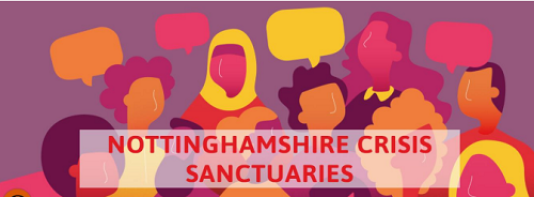I need help with…
my Diagnosis

If you have been given a mental health diagnosis by a Psychiatrist, Clinical Psychologist or Counselling Psychologist, you might want to find out more about it, or maybe just find out which services can help you in Nottingham and Nottinghamshire.
There’s a lot of information out there, and it can be hard to know if it’s reliable. We talk about some mental health diagnoses on other pages of this website, like depression and the anxiety disorders. This page is a quick guide to some of the other key diagnoses, to help you to get started.
Bipolar Disorder
Bipolar disorder is a condition where someone has ‘manic’ episodes and depressive episodes, when they feel very low and lacking in energy. A manic episode can make you feel excited, irritable, and feel really good about yourself.
You might find you need less sleep than normal, take risks, and find it hard to concentrate. Sometimes manic and depressive episodes can happen at the same time, or your mood might swing between the two very quickly.
Dissociative disorders
Dissociative disorders are a group of conditions in which someone feels disconnected or detached in some way, to the point that it is causing them difficulty in their daily life.
In depersonalisation/derealisation disorder, the person either feels detached from themselves, or from the world around them. You might feel like you are not in your body and are watching yourself from a distance, or as though you are watching a movie of reality.
At the other end of the scale, Dissociative identity disorder, or DID, is a condition where someone has sudden and major changes in how they think, feel and act.
They might seem almost like a different person sometimes. They might even feel like they are a different person to themselves, and not remember anything from before they changed.
MIND, Dissociative disorders:
Hoarding Disorder
People with hoarding disorder collect and keep so many possessions that the place where they live gets cluttered, and can often become unsafe. You might feel an urge to buy new possessions, struggle to throw things away, and have ideas you should keep your possessions because they might be useful, or because it would be very upsetting for you to let them go.
Take a look at this video about hoarding from NHS Lancashire and South Cumbria:
Personality Disorders
Your personality is the way that you normally behave, experience life, and make sense of yourself, other people, events, and situations.
We all have bits of our personality that cause us difficulties sometimes, for example if it is very important to you that people treat each other with respect, you might have found yourself in arguments with your teachers or employers.
Having a personality disorder means that there are parts of your personality that are regularly causing difficulties for you, or for the people around you, in a number of areas of your life. This can make it hard to build and keep close relationships.
People with a personality disorder are likely to have had difficult experiences when they were younger, when their personality was developing. A personality trait that causes difficulties for you as a grown up might have been important and useful to you when you were young. With time and support, you can change learn to manage parts of your personality that are causing you difficulties.
Schizophrenia
Schizophrenia is a long-term condition.
When someone with schizophrenia is experiencing psychosis (an acute episode) they might have hallucinations, delusions and confused thoughts. You can find out more about psychosis here.
As well as acute episodes, people with schizophrenia often avoid social contact, lack motivation to do things, and feel disconnected from their emotions, which can mean that they don’t show much emotion.
Many people with Schizophrenia live normal, fulfilling lives when they’re not having an episode, and some will only ever have one episode.
Get Help Now!
Here are a list of services that can help. The icons below tell you the type of support available.

Nottingham and Nottinghamshire Talking Therapies

MIND

Local Mental Health Teams

Community Mental Health Teams

MBT Service

Crisis Line

Crisis Sanctuaries
Which services can I access?
Some of the services available operate only within city or the wider county area. Pop your postcode in below to quickly check which services are available to you
Related topics
-

Self Harm
Self-harm is when you hurt yourself on purpose. It’s a way of trying to deal with emotions, thoughts or life situations that feel too much.
-

Suicidal Thoughts
Many people have thoughts about suicide at some point in their life. If you are having thoughts about suicide or harming yourself, help is available.
-

Loneliness and Isolation
Loneliness and social isolation can affect us all at some point in our lives. Being alone and feeling lonely are different things.
-

Anxiety
You might feel nervous, stressed, anxious or ‘on edge’ when you are getting ready to do something that is difficult for you.